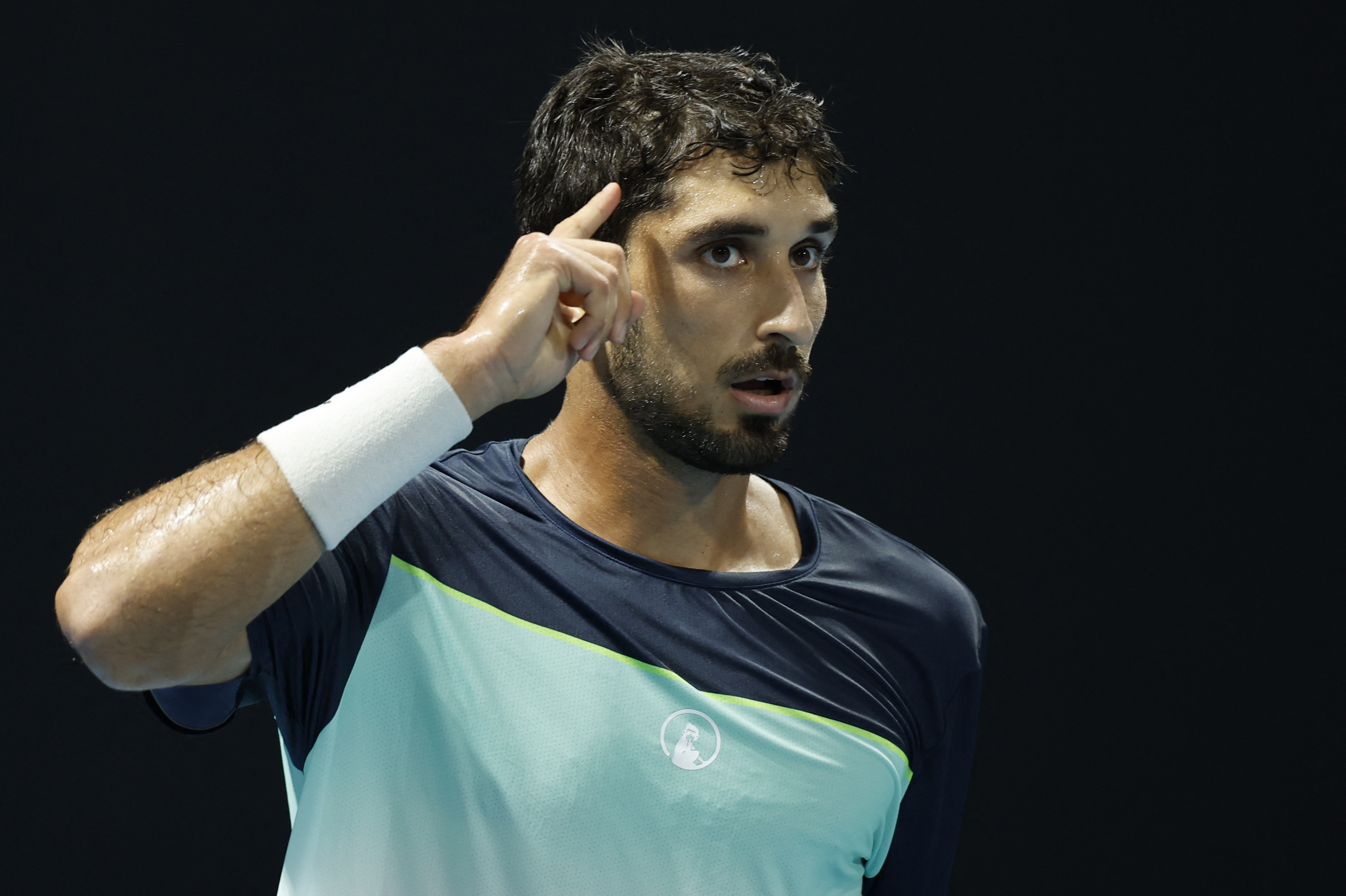MADRID: World No. 2 Aryna Sabalenka played a superb attacking game to beat Iga Swiatek in the Madrid Open final on Saturday for her first win on clay against her top-ranked rival.
The Belarusian prevailed 6-3, 3-6, 6-3 to capture the title in the Spanish capital for the second time.
Until Saturday, the 25-year-old had lost all of her three previous meetings with the Pole on clay without even winning a set.
“It’s something unbelievable. I’m really happy that I’m able to fight against her and I’m able to get this win so it’s not like so super boring for people to watch our matches,” said the champion.
“I really enjoy playing on clay, because I have extra time. It’s not super fast, so I can go for my powerful shots. There are longer rallies. It’s like not just bomb, bomb.”
The big-hitting Belarusian gained revenge for defeat by her Polish rival in the Stuttgart final a fortnight ago with a thrilling triumph to end Swiatek’s nine-match winning streak ahead of her French Open defense.
Two-time Roland Garros winner Swiatek fought her way back into the match after an explosive start by Sabalenka, but the second seed came back strongly in the third set to win the first WTA 1000 final featuring the top two ranked players since 2014.
Sabalenka earned her 13th career title, and only her second on clay in two hours and 25 minutes, clinching victory on her fourth championship point with a forehand cross-court winner.
“I’m just super happy with this win, especially against Iga on the clay, it’s always tough matches against her,” added Sabalenka.
The Australian Open champion started with great intensity in her serve and forehand, given some extra zip because of the altitude — Madrid is the second highest European capital city.
Sabalenka earned two break points but sought a winner too keenly to convert and Swiatek held for 3-3.
She did the same again on Swiatek’s next service but this time earned the break for a 5-3 lead when the top seed sent a backhand long.
The 2021 Madrid victor consolidated to clinch the first set, her first ever against Swiatek on the dirt, having lost in straight sets in their three previous clay clashes.
Swiatek, who failed to earn a single break point in the opening set to Sabalenka’s four, converted her first for a 2-0 lead in the second set as her opponent pushed a return into the net.
The world No. 1 consolidated it to love, showing a flash of her usual prowess on clay.
However at 3-1 down, the relentless Sabalenka earned four break points, getting back on serve with a beefy backhand winner down the line.
The Belarusian consolidated and again put Swiatek under the cosh on her serve, but the Pole dug deep and saved two break points to hold.
Swiatek showed her fine defensive game as she broke again for 5-3 and served it out to force the decisive third set.
Sabalenka broke for a 2-0 advantage as Swiatek went a fraction long, and saved a break point with a vicious forehand and another after that to consolidate.
Swiatek broke back but Sabalenka did it again for a 5-3 lead and, after missing three championship points as the 21-year-old battled until the end, eventually triumphed.
“Sometimes it’s tougher; sometimes it’s easier. That’s why we have variety in tennis, and that’s why sometimes players are playing better on some surfaces and some on different,” said Swiatek.
The world number one aimed a jab at the tournament organizers for some of the late nights over the past week, with matches regularly finishing in the early hours.
“It’s not fun to play at 1am though,” she added. “I’m happy anyway I was able to get past this experience and survive and be in the final.”
In the men’s final on Sunday home favorite and world No. 2 Carlos Alcaraz is aiming to defend his title against German lucky loser Jan-Lennard Struff.




























